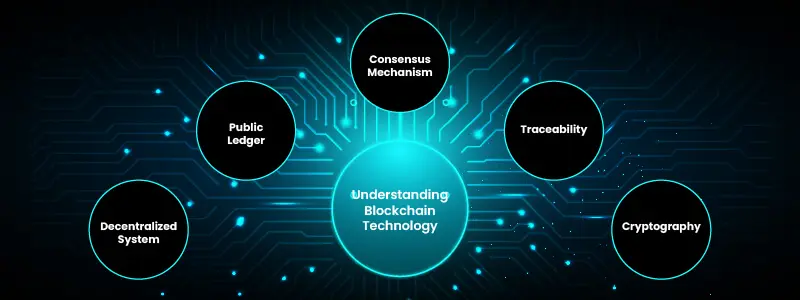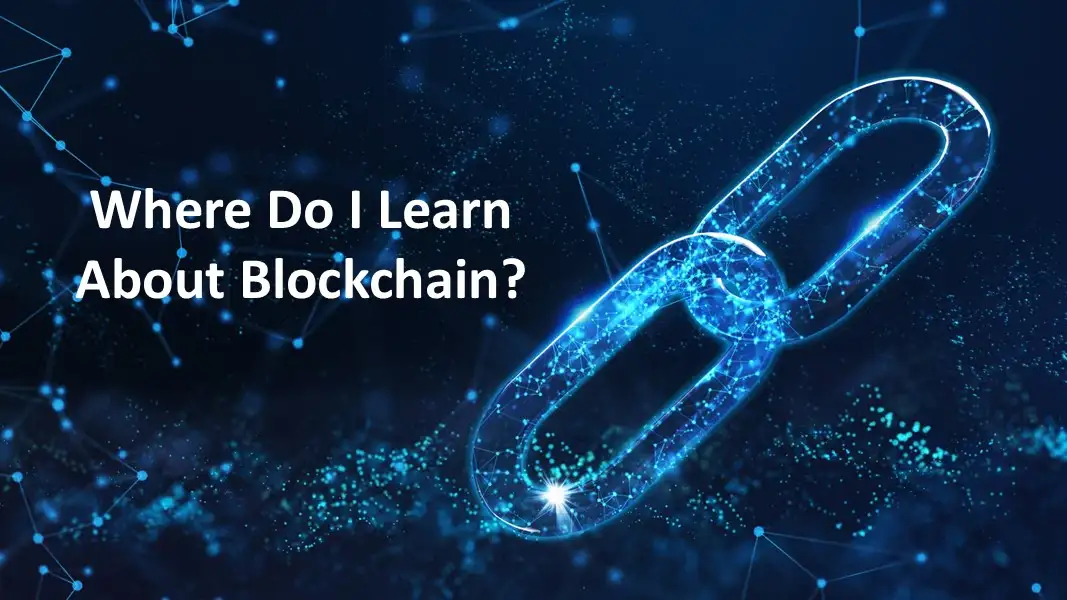In recent years, blockchain technology has become a critical area of focus across industries ranging from finance to healthcare. Whether you’re looking to enhance your career prospects, develop technical skills, or simply understand its potential, learning about blockchain opens a world of opportunities. With the vast amount of information available, you might be asking yourself: Where do I learn about blockchain? This comprehensive guide will walk you through various methods to learn blockchain, from online courses and certifications to community engagement and hands-on practice.
Understanding Blockchain Technology

Before diving into where to learn about blockchain, it’s essential to have a foundational understanding of what blockchain is and why it matters. Blockchain is a decentralized digital ledger that securely records transactions across multiple computers. Each transaction is stored in a “block,” and these blocks are linked together in chronological order to form a chain, hence the term “blockchain.” This structure ensures transparency, security, and immutability, which makes blockchain particularly valuable in applications such as cryptocurrencies (like Bitcoin), smart contracts, supply chain management, and more. Click here to know more
Why Should You Learn Blockchain?
Blockchain is transforming industries at a rapid pace, and the demand for skilled professionals in this field is soaring. Whether you’re a developer, a project manager, or a business strategist, understanding blockchain can significantly enhance your career. The technology has applications in diverse sectors, including finance, healthcare, logistics, and governance. Additionally, blockchain is the foundation for the evolving Web 3.0 and the metaverse, making it crucial for those looking to stay ahead in the tech industry.
Now, you might be thinking, Where do I learn about blockchain and cryptocurrency? Let’s break down the various paths you can take.
Step 1: Reflect on Your Curiosity
The first step is to ask yourself: What do I want to learn about blockchain? Reflecting on your curiosity will guide your learning journey. Here are some questions you might consider:
- What is blockchain’s most compelling offering to the world?
- Can blockchain make the world smarter and more efficient?
- How will blockchain impact industries like finance, healthcare, education, and logistics?
- What real-world problems have been solved by blockchain? (Use cases)
Take a day or two to generate a list of questions about blockchain. This will help you develop a roadmap for your learning journey and keep you engaged in the process. As you seek answers, you’ll come across essential concepts like Distributed Ledger Technology (DLT), mining, immutability, Proof of Work (PoW), Proof of Stake (PoS), and Merkle Trees.
Step 2: Start Researching Blockchain Basics
After generating your questions, the next step is to start researching. Here’s a great way to begin learning:
- Blockchain Concepts
Understanding the basics of blockchain is essential before delving into its more complex aspects. Focus on these core ideas:- Distributed Ledger Technology (DLT): The foundational technology behind blockchain.
- Mining: The process by which transactions are verified and added to the blockchain.
- Immutability: Once data is written on the blockchain, it cannot be changed or tampered with.
- Proof of Work (PoW) & Proof of Stake (PoS): Consensus algorithms used to validate transactions.
- Merkle Trees: A structure that enables efficient verification of large data sets.
- Explore Ethereum
Ethereum is a critical platform in the blockchain ecosystem. By researching Ethereum, you’ll come across key concepts like Smart Contracts, Decentralized Applications (dApps), and tokens. Ethereum’s functionality goes beyond just cryptocurrency, offering a platform for building decentralized solutions that can disrupt industries.
Step 3: Structured Learning – Online Courses & Certifications
Once you have a general understanding of blockchain, it’s time to move to structured learning. There are many online platforms that offer high-quality blockchain courses. If you’re still wondering, Where do I learn about blockchain? these platforms are an excellent place to start:
- Coursera Coursera offers numerous blockchain courses from reputable institutions. Some notable options include:
- Bitcoin and Cryptocurrency Technologies (Princeton University): Explore how Bitcoin works and the technology behind it.
- Blockchain Basics: A beginner-friendly course to introduce you to blockchain fundamentals.
- Blockchain Specialization: A more in-depth series on smart contracts and decentralized applications.
- edX For more specialized or beginner-focused learning, edX is a great option:
- Blockchain Fundamentals: Covers essential blockchain concepts and their applications.
- Professional Certificate in Blockchain: Develop practical skills in blockchain development.
- Udemy Udemy offers a vast selection of blockchain courses ranging from beginner to advanced levels. Key areas of focus include blockchain development, smart contract programming, and cryptocurrency.
- Simplilearn In partnership with IIT Kanpur, Simplilearn provides a blockchain certification program that includes hands-on projects, covering Bitcoin, Ethereum, Hyperledger, and more.
Step 4: Engage in Immersive Learning – Coding Bootcamps
For those looking for immersive learning experiences, coding bootcamps are an excellent option. Many bootcamps provide focused training on blockchain development:
- Blockchain Development: Learn languages like Solidity (for Ethereum) and JavaScript.
- Hands-On Projects: Build decentralized applications (dApps) or create your own smart contracts during these programs.
Coding bootcamps are intensive, but they offer practical skills that can quickly help you transition into a tech role.
Step 5: Obtain Blockchain Certifications
Certifications can validate your blockchain knowledge and set you apart in the job market. Some recognized certifications include:
- Certified Blockchain Developer™: A technical certification focused on blockchain development.
- Certified Blockchain Architect™: Focuses on designing and architecting blockchain solutions.
These certifications enhance your credibility and demonstrate your commitment to mastering blockchain technology.
Step 6: Practical Experience and Community Engagement
To truly master blockchain, you need hands-on experience. Start by:
- Experimenting with Cryptocurrencies
Purchase small amounts of cryptocurrency and understand how transactions work. This hands-on experience will familiarize you with the blockchain ecosystem. - Build Projects
Use platforms like GitHub to contribute to open-source projects or build your own dApps and smart contracts. Practical application is key to understanding how blockchain works in real-world scenarios. - Join Hackathons
Participate in blockchain-focused hackathons. These are fantastic opportunities to collaborate with others and build innovative solutions under time constraints. - Engage with the Blockchain Community
Involvement in the blockchain community can significantly enhance your learning experience. Consider joining:- Online Forums: Platforms like Reddit or specialized forums provide a space to ask questions and learn from others.
- Meetups and Conferences: Attend local meetups or global conferences to network with industry experts.
- Social Media: Follow blockchain influencers on platforms like Twitter or LinkedIn to stay updated on the latest developments.
Step 7: Supplement Your Learning with YouTube and Books
YouTube is an excellent resource for blockchain education. Some recommended channels include:
- Blockchain at Berkeley: Offers classroom-style lectures on blockchain topics.
- Ivan on Tech: Popular channel discussing advanced blockchain technologies.
- Altcoin Daily: Provides insights into the cryptocurrency market and blockchain trends.
Additionally, supplement your learning with books like:
- The Bitcoin Standard by Saifedean Ammous
- Mastering Bitcoin by Andreas M. Antonopoulos
- Blockchain Basics by Daniel Drescher
These resources provide valuable theoretical and practical knowledge to deepen your understanding of blockchain.
Conclusion
So by taking a multifaceted approach you can learn about blockchain. Start by reflecting on your curiosity, dive into research, engage in structured learning through online courses, and gain practical experience through community engagement and hands-on projects. Whether you’re looking to become a blockchain developer or simply understand how blockchain can impact your industry, the resources mentioned here will guide you along your learning journey. By following these steps, you’ll build a solid foundation in blockchain technology and prepare yourself for the vast opportunities in this rapidly evolving field. Please let us know if we missed something
Where Do I Learn About Blockchain and Cryptocurrency?
To learn about blockchain and cryptocurrency, start with online platforms like Coursera, edX, and Udemy, which offer beginner-friendly courses on these topics. Explore YouTube channels like Ivan on Tech and Altcoin Daily for real-time insights and tutorials. Engage with the blockchain community via Reddit or Twitter for practical knowledge and networking. Finally, experiment with cryptocurrencies by creating a wallet and understanding transactions to deepen your practical understanding of blockchain technology.
How to Learn Blockchain Development for Free?
You can learn blockchain development for free through platforms like freeCodeCamp, Ethereum.org, and Solidity Documentation, which offer tutorials on smart contract programming and decentralized apps (dApps). Additionally, YouTube channels like Blockchain at Berkeley provide in-depth lessons. GitHub is also a valuable resource for accessing open-source blockchain projects. By engaging in online communities, hackathons, and contributing to open-source projects, you can enhance your development skills without any financial investment.
